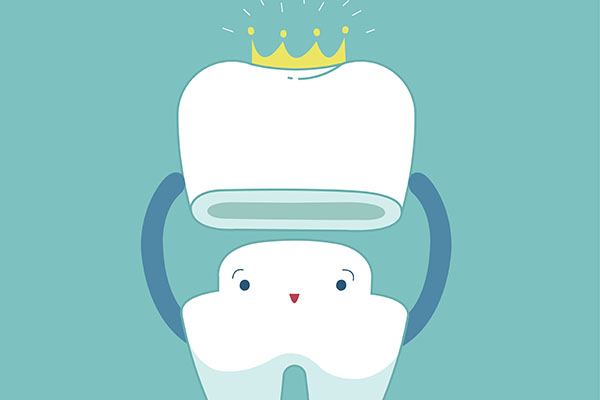 The time and effort that go into fitting a dental crown suggest a permanent restoration. Maybe it is the fact that installing a dental crown often requires multiple dentist visits. It could be the permanence that comes with the removal of enamel before the placement of a crown. Dental crowns that sit on dental implants also seem permanent.
The time and effort that go into fitting a dental crown suggest a permanent restoration. Maybe it is the fact that installing a dental crown often requires multiple dentist visits. It could be the permanence that comes with the removal of enamel before the placement of a crown. Dental crowns that sit on dental implants also seem permanent.
This raises the question: are dental crowns supposed to be permanent or not? Also, how often do dentists end up replacing their patients’ dental caps?
The dental crown: A brief explainer
A dental crown is a prosthetic that looks like the visible part of a tooth, hence its name. Dental caps are hollow on the inside, which allows them to act as a sheath for the underlying tooth. A dentist will make a mold of their patient’s tooth and use the impression as a blueprint for the dental cap.
The end product is a custom restoration with a hollow space that is a perfect fit for the tooth it sheaths. Some dentists have in-office milling machines that can fabricate same-day crowns. Many more dentists send impressions of their patient's teeth to dental labs. These labs create the crowns by hand or machine. The dental lab option requires a patient to make at least two visits to the dentist.
Does the effort it takes to get a dental crown pay off in terms of durability? A dental cap can last anywhere from fifteen years to a lifetime. However, there are cases where a dental crown lasts only a few years. Here is what determines how long a crown remains in perfect condition:
1. The type of crown
The material that goes into the making of a crown informs how long the crown lasts. Crowns made of composite resin are affordable, but there are limitations to their toughness and lifespan. A porcelain dental cap can last just about fifteen years. A gold crown can last a lifetime under the right circumstances.
2. The oral health and oral habits of the wearer
Dental crowns form protective barriers against injury and infection, but only to a degree. Take the example of a patient that experiences a failed root canal. A dentist will need to remove the patient’s crown to treat the problem tooth. The dentist may reuse the crown, or they may need to place a new crown.
3. Injury and breakage
A blow to the mouth can damage the crown as well as the tooth it sits on. Extensive damage to the structure of the crown will mean that the patient gets a new crown.
4. Changes in the mouth due to aging
Age changes the structures that anchor the natural teeth. As an example, gum recession can change the fit of a dental crown. A dentist would advise a patient who experiences this type of change to get a new crown.
Reach out if your smile could use a boost
Our practice offers preventative and restorative oral healthcare to meet all your needs. Get in touch with us to schedule a visit with our dentist. They will use their knowledge and experience to restore your smile in a way that works for you. A talk with our dentist will help you figure out if a dental crown is the way to give your smile the touchup it needs.
Request an appointment or call Frankford Dental Care at 215-302-1746 for an appointment in our Philadelphia office.
Recent Posts
A cosmetic dentist can use a dental crown to improve your dental health. A tooth with severe decay or discoloration can be depressing. The infection could reach the pulp at any time. Placing a custom-fit dental crown can protect your tooth from further damage and injury. If you want to know more about the steps…
Dental crowns come in a range of material options, including zirconium and porcelain. These materials vastly increase the aesthetics and reliability of dental crowns as compared to past alternatives. Regardless of the material, most dental crowns look and work well. However, there are some significant variations between these options to be aware of. This article…
Dental crowns are dental restorations that cover teeth entirely for added protection, improved function, and cosmetic purposes. Dental crowns are versatile treatment solutions, and there are many reasons that a dentist may recommend this treatment for patients.The most common reasons that dentists recommend a dental crown are to protect a tooth that is weakened or…


